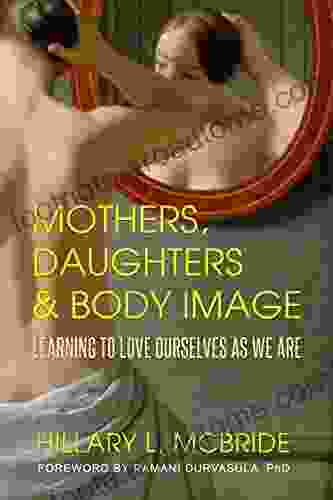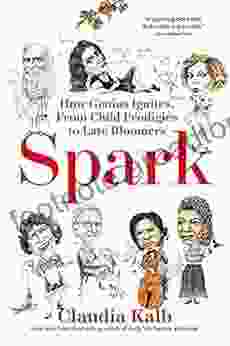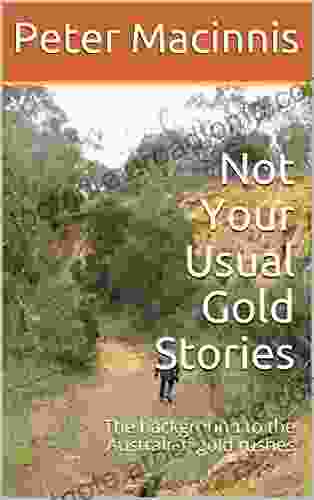Unlocking Genius: A Journey Through the Lives of Child Prodigies and Late Bloomers

The concept of genius has captivated our imaginations for centuries. We have marveled at the extraordinary abilities of child prodigies, those who display remarkable talents and achievements at an astonishingly young age. But what about those who bloom later in life, who find their calling and reach their full potential after years of struggle? In this article, we embark on a fascinating journey through the lives of both child prodigies and late bloomers, exploring the secrets behind their genius and uncovering the lessons we can learn from their extraordinary stories.
Child Prodigies: The Early Bloomers
Child prodigies are often the subject of awe and admiration. Their exceptional abilities in music, mathematics, art, or other fields seem to come effortlessly, as if they were born with an innate talent. Mozart began composing at the age of 5, Pablo Picasso painted his first masterpiece at 9, and Marie Curie excelled in both physics and chemistry as a teenager. These child prodigies seem to possess an extraordinary capacity for learning and a natural inclination towards their chosen field.
4.7 out of 5
| Language | : | English |
| File size | : | 5416 KB |
| Text-to-Speech | : | Enabled |
| Screen Reader | : | Supported |
| Enhanced typesetting | : | Enabled |
| X-Ray | : | Enabled |
| Word Wise | : | Enabled |
| Print length | : | 372 pages |
| Lending | : | Enabled |
However, it is important to remember that child prodigies are not always guaranteed a life of success. Some may struggle to maintain their momentum as they grow older, while others may face challenges with social and emotional development. Nurturing and supporting these young geniuses is crucial to help them reach their full potential and overcome the unique challenges they may encounter.
Late Bloomers: The Power of Perseverance
In contrast to child prodigies, late bloomers are individuals who find their calling and achieve success later in life. They may not have shown extraordinary abilities in their early years, but through perseverance, hard work, and a deep passion for their chosen field, they eventually reach their full potential. Some notable examples of late bloomers include:
- Vincent van Gogh, who did not start painting until his late twenties and only gained recognition after his death.
- J.K. Rowling, who wrote her first Harry Potter novel in her thirties after years of struggle and rejection.
- Vera Wang, who became one of the world's most famous fashion designers after pursuing her passion for fashion in her forties.
The stories of late bloomers remind us that it is never too late to find our calling and achieve our dreams. They teach us the importance of perseverance, resilience, and never giving up on our aspirations, no matter how long it takes.
Nurture and Education: The Role of the Environment
While some may believe that genius is solely determined by innate talent, research has shown that nurture and education play a significant role in the development of both child prodigies and late bloomers. Providing a stimulating and supportive environment, fostering curiosity, and encouraging exploration can help children reach their full potential. Exceptional teachers, mentors, and parents can make a profound impact on the lives of these young minds.
For late bloomers, supportive relationships, opportunities for self-discovery, and access to resources can be instrumental in helping them find their path and achieve success. Education and mentorship can provide them with the knowledge, skills, and confidence they need to pursue their passions and overcome obstacles.
The Nature of Genius
So, what exactly is genius? Is it a gift reserved only for the chosen few, or is it a potential that lies within us all? Researchers have proposed various theories to explain the nature of genius, including:
- Innate Talent: Some believe that genius is largely determined by innate abilities and predispositions.
- Environmental Factors: Others emphasize the role of nurture and environment, arguing that genius can be cultivated through exposure to stimuli and opportunities.
- Hard Work and Dedication: Many experts believe that hard work and dedication are essential ingredients for genius, regardless of innate talent or environmental factors.
- Cognitive Flexibility: Genius may involve the ability to think flexibly and creatively, to make connections between seemingly unrelated concepts.
- Intuition and Insight: Some researchers believe that genius involves a heightened ability for intuition, insight, and the ability to see patterns and make connections.
It is likely that genius is a complex combination of both innate abilities and environmental factors. Nurturing our potential, providing opportunities for learning and exploration, and fostering a culture of curiosity and creativity can help us all unlock our inner genius.
The lives of child prodigies and late bloomers offer us invaluable lessons about the nature of genius and the human potential for excellence. While innate talent may play a role, it is clear that nurture, education, and perseverance are essential ingredients for success.
By understanding the unique challenges and opportunities faced by both child prodigies and late bloomers, we can create environments that foster creativity, support talent, and empower individuals to reach their full potential. Whether we are early or late bloomers, the pursuit of genius is a journey that is open to us all.
4.7 out of 5
| Language | : | English |
| File size | : | 5416 KB |
| Text-to-Speech | : | Enabled |
| Screen Reader | : | Supported |
| Enhanced typesetting | : | Enabled |
| X-Ray | : | Enabled |
| Word Wise | : | Enabled |
| Print length | : | 372 pages |
| Lending | : | Enabled |
Do you want to contribute by writing guest posts on this blog?
Please contact us and send us a resume of previous articles that you have written.
 Book
Book Novel
Novel Page
Page Chapter
Chapter Text
Text Story
Story Genre
Genre Reader
Reader Library
Library Paperback
Paperback E-book
E-book Magazine
Magazine Newspaper
Newspaper Paragraph
Paragraph Sentence
Sentence Bookmark
Bookmark Shelf
Shelf Glossary
Glossary Bibliography
Bibliography Foreword
Foreword Preface
Preface Synopsis
Synopsis Annotation
Annotation Footnote
Footnote Manuscript
Manuscript Scroll
Scroll Codex
Codex Tome
Tome Bestseller
Bestseller Classics
Classics Library card
Library card Narrative
Narrative Biography
Biography Autobiography
Autobiography Memoir
Memoir Reference
Reference Encyclopedia
Encyclopedia Dr Jenny Amanda
Dr Jenny Amanda Scott Stuart
Scott Stuart Craig Hunt
Craig Hunt Christopher Lodge
Christopher Lodge Cove Books
Cove Books Douglas Weiss
Douglas Weiss Jamie Woodcock
Jamie Woodcock Daniel Levy
Daniel Levy Kapil Sharma
Kapil Sharma Robert Roskind
Robert Roskind Christopher Craft
Christopher Craft J Mark Jordan
J Mark Jordan Craig Fiedler
Craig Fiedler Clay Shirky
Clay Shirky Kj Doris
Kj Doris Conrad Bauer
Conrad Bauer Chuck Smith
Chuck Smith Mo Xiang Tong Xiu
Mo Xiang Tong Xiu Stefanie Sacks
Stefanie Sacks Colin Ross
Colin Ross
Light bulbAdvertise smarter! Our strategic ad space ensures maximum exposure. Reserve your spot today!

 Andrew BellSibelius Music Pro Guides Technical Reference: Your Comprehensive Source for...
Andrew BellSibelius Music Pro Guides Technical Reference: Your Comprehensive Source for... Adrien BlairFollow ·3.1k
Adrien BlairFollow ·3.1k Tom HayesFollow ·18.3k
Tom HayesFollow ·18.3k Dashawn HayesFollow ·4.7k
Dashawn HayesFollow ·4.7k Joseph HellerFollow ·17.9k
Joseph HellerFollow ·17.9k Dion ReedFollow ·2.5k
Dion ReedFollow ·2.5k Gabriel Garcia MarquezFollow ·2k
Gabriel Garcia MarquezFollow ·2k Hudson HayesFollow ·12.8k
Hudson HayesFollow ·12.8k Sammy PowellFollow ·19.3k
Sammy PowellFollow ·19.3k

 Charles Bukowski
Charles BukowskiUnlock Your Entrepreneurial Potential: Start Small,...
Are you ready to embark on an exciting journey...

 Braeden Hayes
Braeden HayesUnveiling the Extraordinary Tale of "Weird Girl With...
A Journey of...

 Shawn Reed
Shawn ReedLearning To Love Ourselves As We Are: A Journey Towards...
In the tapestry of life, self-love emerges...

 Allan James
Allan JamesQuick Guide to Pipeline Engineering: Your Gateway to...
Welcome to the realm of...

 Beau Carter
Beau CarterLife With and After an Addict: A Journey of Understanding...
Addiction is a complex and devastating...
4.7 out of 5
| Language | : | English |
| File size | : | 5416 KB |
| Text-to-Speech | : | Enabled |
| Screen Reader | : | Supported |
| Enhanced typesetting | : | Enabled |
| X-Ray | : | Enabled |
| Word Wise | : | Enabled |
| Print length | : | 372 pages |
| Lending | : | Enabled |












